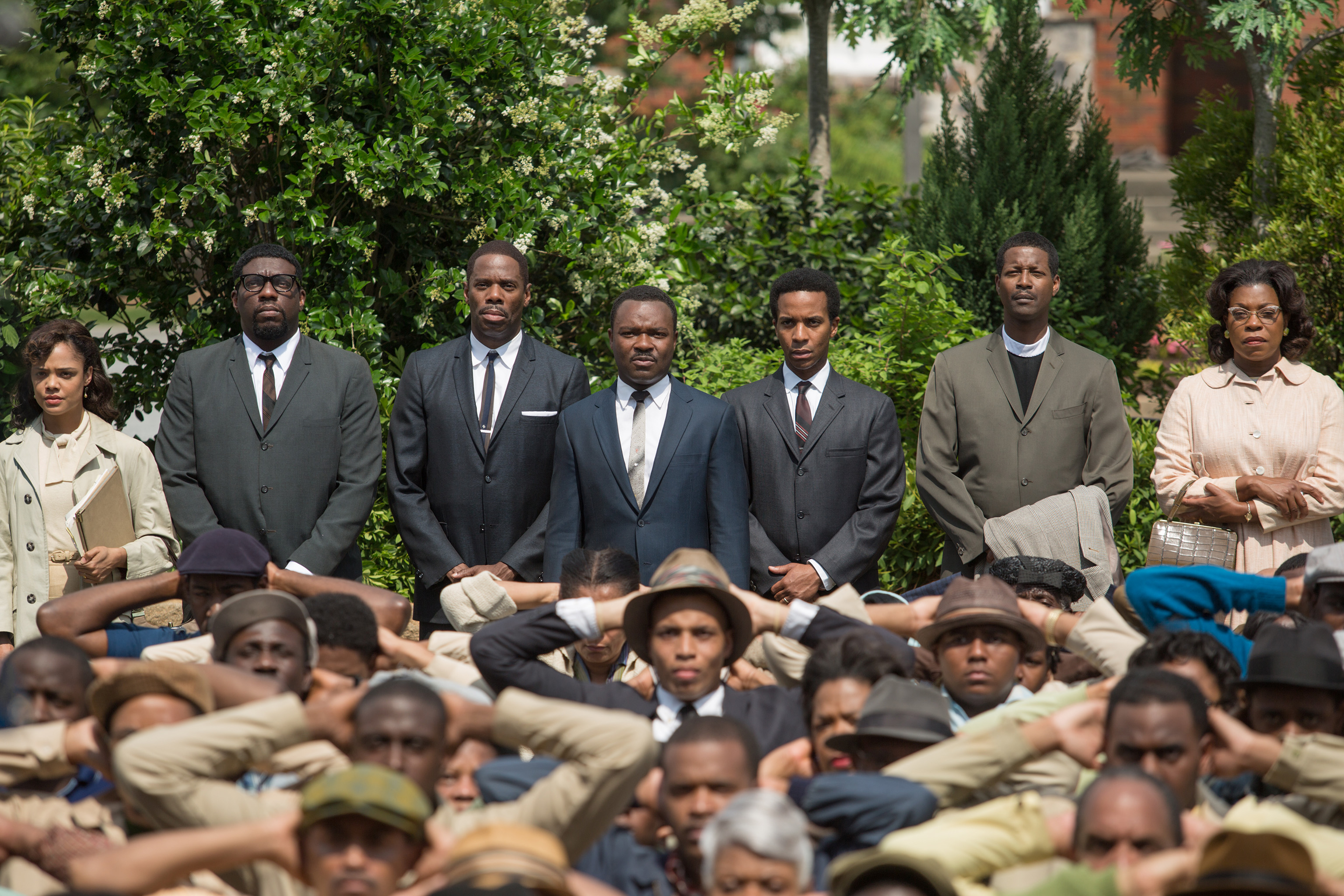Starring: David Oyelowo, Tom Wilkinson, Carmen Ejogo, Tim Roth, Oprah Winfrey, Common
Selma is the story of Martin Luther King Jr, and his freedom marches and demonstrations in Selma, Alabama. There are many remarkable things about Selma. The movie itself is a huge achievement in filmmaking. But the message is also remarkable. We are at a point in our society where Selma and Martin Luther King's ideals could not be more painfully relevant. We look at Ferguson as a horrible tragedy, but after actually seeing a depiction of what happened in Selma 50 years ago, I can honestly say it makes what's happening now look incredibly small. That's not to say that Ferguson is not horrific, because it is. But after having to witness the brutal beatings and racist bigots shown in Selma, I can say that we are lucky that while racism is still a problem, we've come a long way since the Selma riots. Martin Luther King's message is still alive, but maybe we've lost track of what it really means. Selma is a movie that captures that meaning, that essence, and is a profoundly moving film.
In the scene pictured above, a peaceful demonstration led by King is being held in front of the Selma town hall to get the sheriff's attention. There were voting rights for African-Americans in Selma, but they were not allowed to vote by registration. The sheriff descends into the crowd and starts shoving a young man, and Annie Lee Cooper (Oprah Winfrey) gets up and hits him in the head and knocks him down. The officers come down and grab her, smash her head down into the ground and furiously beat her. And everyone's arrested. So by no means is this a comfortable movie to watch. It's PG-13, but its depiction of police brutality is particularly disturbing and graphic. Dr. King is played by David Oyelowo, and he does an amazing job acting. He's originally British, but you can't even tell, as he takes on King's dialect as if it were his own. He delivers the big speeches with ease, and is as powerful a force onscreen as Martin Luther King would be in real life. Other great performances come from Carmen Ejogo as his wife Coretta Scott King, Tom Wilkinson as the stubborn Lyndon Johnson, and Tim Roth as the fanatically racist George Wallace. There's a conversation that Johnson and Wallace have in the White House, where the president asks the governor to stop. After all, eradicating the blacks was not his original policy, and yet here he is with Confederate flags hung up and down the Montgomery streets. His reply was that the blacks will take control of everything, and he exposes how narrow a view he has, and how his motives are fueled only by hatred. Tim Roth must be a great actor, because he made George Wallace pretty hateable.
The real standout for Selma is director Ava DuVernay. I think she deserves to win Best Director, and she actually might from how things are looking. She directs with such a skill, her presence is felt in every scene. And that's hard as a director, to really let your audience know you're there without taking away from the movie. Selma is expertly directed, and we should have had the first woman of color nominated for Best Director. What impressed me even more was how she told Martin Luther King's story. The movie does not end with his assassination. It does not begin with his birth. It starts with his Nobel Peace Prize, and ends with his final speech in Montgomery. It also ties in footage from the real marches and attacks, and every single time he leaves a building or makes a phone call, letters appear onscreen saying "Dr. Martin Luther King Jr. left his house at.....LOGGED" just as if the FBI was watching his every move. There are just so many working parts that make this a great movie.
I'd like to touch upon something I said earlier, and that's the fact that the movie doesn't end with Dr. King's death. This movie is not about Martin Luther King Jr. It's about Selma, Alabama, and the Voting Rights movement. But actually, it's about all he stood for, and why he even came to Selma in the first place. The movie does not try to make this a biography and only shows glimpses into his relationship with Coretta. It doesn't even show his murder, which is a compelling part of his story. But it's not even a factor in the story being told. I walked out of this movie and was instantly thinking. What can I do? What can we do? Where did we go wrong? The difference today in racism is that we don't really have a figure like Martin Luther King leading us. But the movie makes it very clear that he is only leading them, and that they are doing the fighting. Maybe we just need to fight a little harder. And that does not mean we have to burn hospitals and murder policeman. That's not what he stood for. Selma just really makes you look at the life we all live now, and think about what's happened in our country in the last 50 years. Are you honestly okay with it?
Rating:





No comments:
Post a Comment